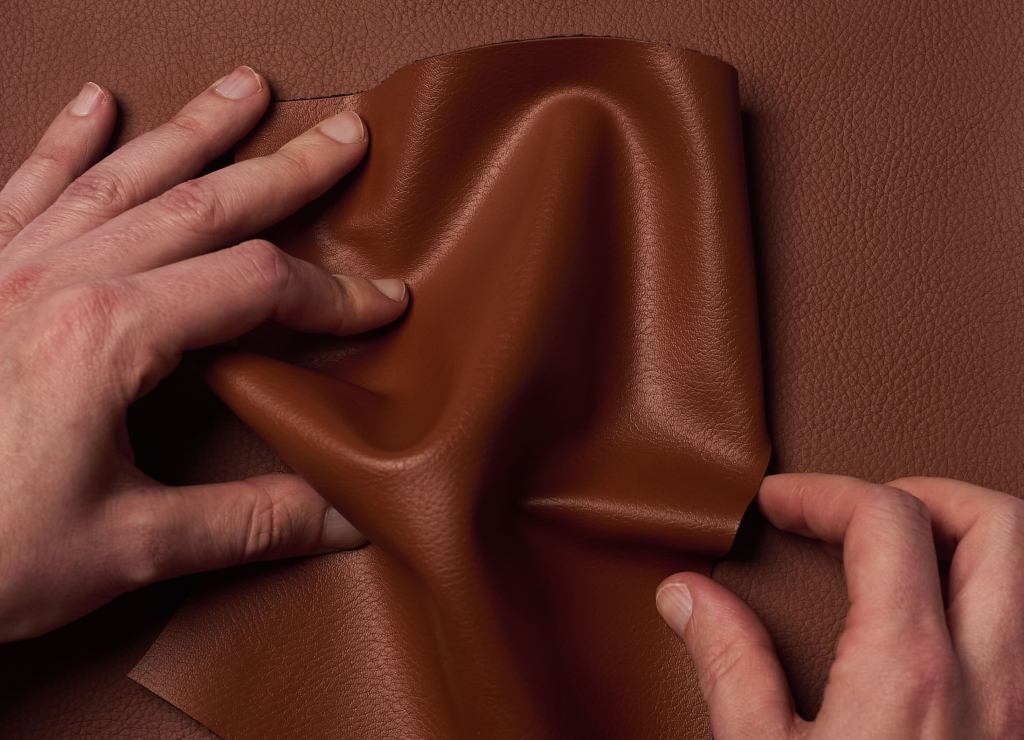In a significant move towards sustainability, Hyundai Motor Company has partnered with Uncaged Innovations, a startup specializing in plant-based leather alternatives, to develop eco-friendly materials for vehicle interiors. This collaboration aims to produce a durable, animal-free leather substitute that closely mimics the texture and aroma of traditional leather, while significantly reducing environmental impact.
The Challenge of Traditional Leather
Traditional leather production involves several environmental and ethical concerns. The process requires substantial water usage, contributes to deforestation for cattle grazing, and involves chemical-intensive tanning methods that can pollute ecosystems. Additionally, the livestock industry is a notable source of greenhouse gas emissions, further exacerbating climate change. These factors have prompted industries, including automotive manufacturers, to seek sustainable alternatives.
Uncaged Innovations’ Plant-Based Solution
Uncaged Innovations has developed a leather alternative derived primarily from grains such as wheat, soy, and corn. This plant-based material is designed to replicate the feel and scent of genuine leather, offering a sustainable option without compromising on quality. According to the company, their product boasts a carbon footprint that is 95% lower than that of traditional leather, presenting a compelling case for its adoption in various industries.
Customization and Versatility
One of the standout features of Uncaged’s material is its adaptability. Leather is not just leather, explains Stephanie Downs, co-founder and CEO of Uncaged Innovations. There are literally a thousand types of leather: different animals, different thicknesses, different ways that they tan it. We had to develop something that could be really easily customizable. This versatility allows the material to be tailored to meet the specific requirements of different applications, including automotive interiors.
Hyundai’s Commitment to Sustainability
Hyundai’s collaboration with Uncaged Innovations underscores the automaker’s dedication to sustainable practices and innovative materials. By integrating plant-based leather into their vehicles, Hyundai aims to offer consumers environmentally friendly options without sacrificing luxury or comfort. This initiative aligns with the company’s broader strategy to reduce its environmental footprint and promote sustainable mobility solutions.
Industry-Wide Implications
The automotive industry has a long history of utilizing leather alternatives, dating back to early models like the Ford Model T, which featured primitive faux leather as early as 1913. However, many of these alternatives have struggled to match the quality and sensory experience of genuine leather. The partnership between Hyundai and Uncaged Innovations represents a significant advancement in this area, potentially setting a new standard for sustainable materials in the automotive sector.
Broader Applications and Future Prospects
Beyond automotive interiors, Uncaged Innovations’ plant-based leather is already being used in vegan-friendly handbags and watch straps. The company’s ability to produce consistent, high-quality material in a factory setting addresses common issues associated with traditional leather, such as blemishes from scars or insect bites, which often lead to significant waste. This consistency not only enhances the aesthetic appeal of the material but also contributes to more efficient manufacturing processes.
Conclusion
Hyundai’s partnership with Uncaged Innovations marks a pivotal step in the automotive industry’s journey towards sustainability. By embracing plant-based leather alternatives, Hyundai is not only addressing environmental and ethical concerns but also catering to a growing consumer demand for eco-friendly products. This collaboration has the potential to influence other automakers to explore similar sustainable materials, driving the industry towards a more responsible and innovative future.



